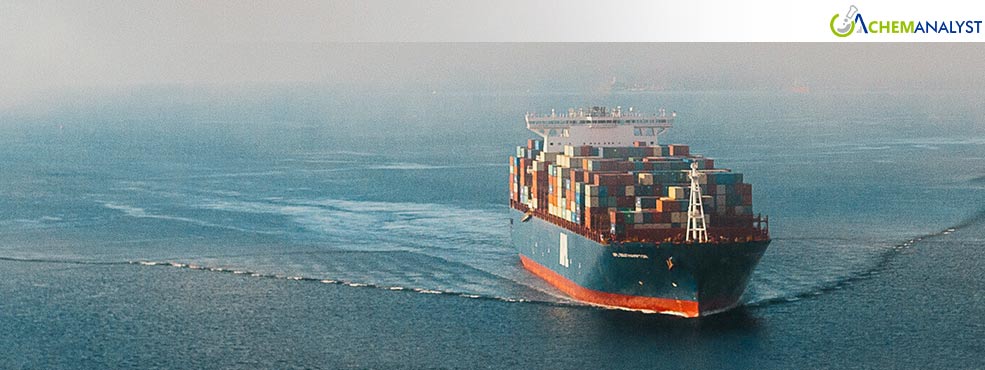Welcome To ChemAnalyst

The International Maritime Organization (IMO), the UN's shipping agency, has reached a agreement to tackle greenhouse gas emissions from the global shipping sector. The deal, finalized on Friday, April 11, introduces a global fuel emissions standard and a system of fees for ships exceeding those standards.
The core of the agreement involves establishing a dual-limit emissions scheme, set to take effect from 2028. All ships will be expected to adhere to a primary emissions limit. A second, more stringent emissions limit will also be in place. Ships that manage to reduce their emissions below this stricter limit will receive financial credits.
The agreement also outlines a penalty system for ships exceeding the emissions limits. Vessels emitting above the primary limit will face a charge of $380 per metric ton of excess CO2 equivalent. A lower penalty of $100 per ton will be applied to emissions that surpass the stricter limit but remain below the main limit.
For instance, by 2030, the primary emissions limit will require ships to decrease their fuel emissions intensity by 8% compared to a 2008 baseline. The stricter standard will mandate a 21% reduction. By 2035, the primary standard will require a 30% reduction, while the stricter standard will demand a 43% reduction.
Ships that surpass the stricter emissions standard will earn credits, which they can then sell to ships that do not comply.
The United States withdrew from the climate talks held at the IMO headquarters in London. The U.S. delegation voiced strong opposition to the proposed measures, urging other nations to follow suit and threatening to impose "reciprocal measures" on any fees levied against U.S.-flagged vessels. Despite this, a majority of countries proceeded to approve the CO2-cutting measures.
While they reached a consensus, there were considerable disagreements amongst the participating nations regarding pace at which the maritime sector should reduce its environmental impact. A proposal for a more robust carbon levy, championed by the European Union and several Pacific Island nations, was ultimately abandoned due to opposition from countries China, Brazil, and Saudi Arabia.
The adoption of these CO2-cutting measures was not without contention. Nations including Saudi Arabia, Russia, and Iran called for a formal vote, which is uncommon at the IMO, where decisions are typically reached by consensus.
The measures still require final approval from member countries at a meeting scheduled for October. If approved, the new regulations will come into force in 2028.
We use cookies to deliver the best possible experience on our website. To learn more, visit our Privacy Policy. By continuing to use this site or by closing this box, you consent to our use of cookies. More info.
